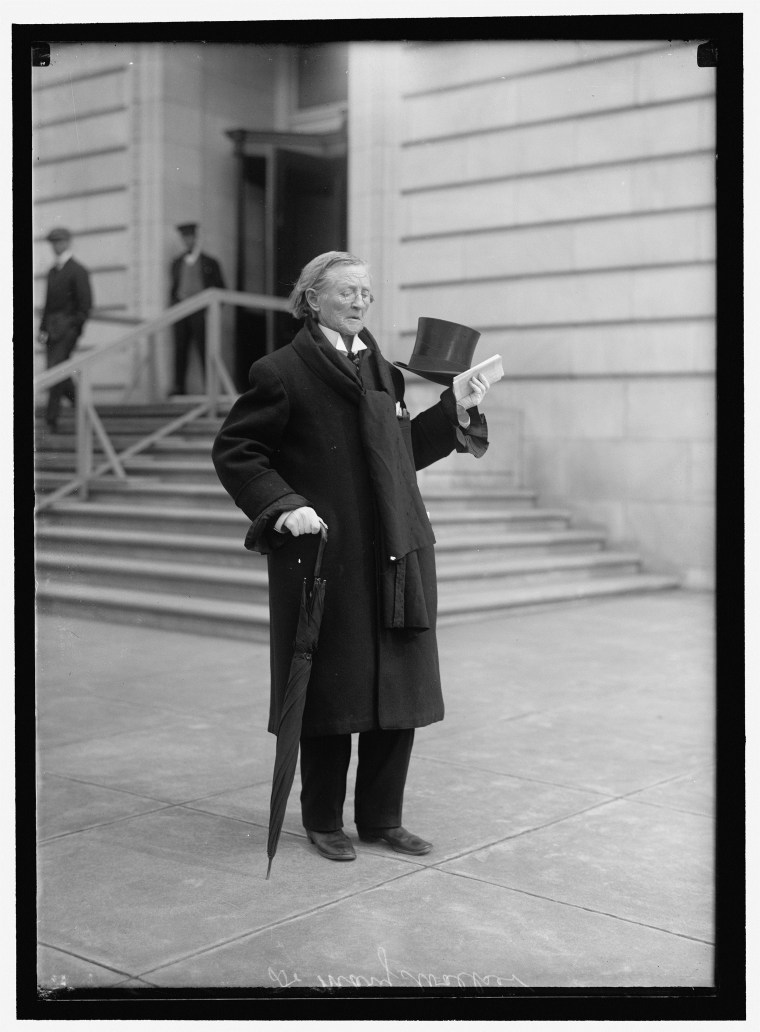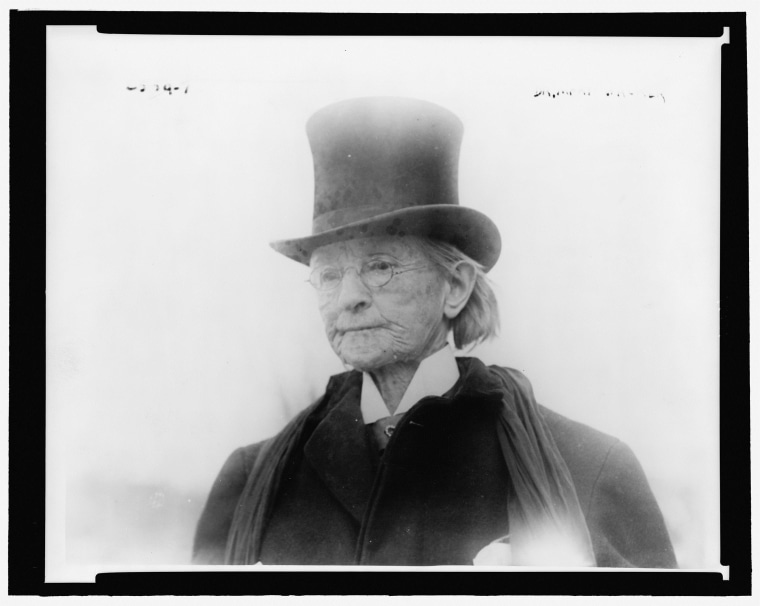In 1916, a high-ranking U.S. military board revoked Medals of Honor from nearly 1,000 recipients, a move that sent shockwaves across the country as former service members suddenly found themselves stripped of their hard-won awards.
A former Army surgeon who had braved some of the most harrowing years of the Civil War was among the many veterans ordered to return their honors. But the physician, who was partial to wearing the glinting Medal with a top hat and bow tie, refused to part with the prize.
It was not the first time Mary Edwards Walker refused to play by the rules.
"She wore the Medal every day of her life, from the moment she received it to the day she died," said Sharon Harris, author of "Dr. Mary Walker: An American Radical, 1832-1919" and a professor at the University of Connecticut.
Walker — the first and only woman to receive the Medal of Honor — was a tough, tenacious iconoclast who stood firm before her foes, be they Confederate soldiers or Army bureaucrats, Harris said.
An enemy of social convention
Walker had ruffled feathers from an early age, attracting jeers and insults as she walked the streets in men's trousers and starched collared shirts, according to Harris.
"Boys chased her and threw rocks at her," Harris said. "She once said that nobody would ever know what she had to go through just to step out the door each morning."

And yet Walker was relentless. She pushed her way to a degree from Syracuse Medical College, the nation's first medical school, and later set up an independent medical practice in Rome, N.Y., with a husband she later divorced after 13 years of unhappy matrimony.
She met her greatest challenge at the outbreak of the Civil War. As the republic broke on ideological fault lines, Walker descended on Washington, D.C., and demanded a spot in the Union Army. Her bid for a commission as a medical officer was rejected, but she volunteered anyway, earning a spot as an acting assistant surgeon — the first of her kind in the U.S. Army.
"She was virtually always an unpaid volunteer. She was a civilian contractor. But she was incredibly ambitious," said Dr. Allen Guelzo, the director of the Civil War Era Studies Program at Gettysburg College.
Walker stood on the Union frontlines for nearly two years, including at Chattanooga, Tenn., in the wake of the bloody Battle of Chickamauga, according to Guelzo.
"She once said that nobody would ever know what she had to go through just to step out the door each morning."
The surgeon spy?
War Department records cited by Harris showed that Walker was also a Union spy who dug out Confederate secrets and ferried them back to her Army superiors. Walker was ultimately captured in 1864 by Confederate troops, who regarded her with suspicion and imprisoned her in Richmond, Va., for nearly half a year.
After the war subsided, Walker was still intent on securing an Army commission. She was repeatedly denied. But in November 1865, President Andrew Johnson signed a bill that awarded her the Medal of Honor for Meritorious Service.
The citation said that Walker had "devoted herself with much patriotic zeal to the sick and wounded soldiers, both in the field and hospitals, to the detriment of her own health. She has also endured hardships as a prisoner of war for four months in a Southern prison."
But nearly half a century later, Walker's Congressional Medal was rescinded after Congress tweaked the Medal of Honor criteria to include only "actual combat with the enemy." (A military board reinstated Walker's honor posthumously in 1977.)
"She absolutely refused to send it back," Guelzo said with a laugh. "She insisted on wearing it until her dying day."

Gender-bender and groundbreaker
She also refused to give up her trademark men's clothing. In her later years, as a tireless advocate for women's rights, dress reform and temperance issues, Walker was arrested repeatedly for dressing in men's clothing and even charged with impersonating a male, Guelzo said.
In the 95 years that have passed since Walker's death in 1919, fashion styles and gender norms may have changed, but at least one basic fact about Walker's life hasn't.
"It's shocking that she's the only female Medal of Honor recipient," Harris said.
Last year, the Pentagon agreed to allow women to serve alongside men in combat roles, a policy shift many advocates hailed as groundbreaking.
The influx of female combat troops could mean an increase in official commendations for their service, Guelzo said.